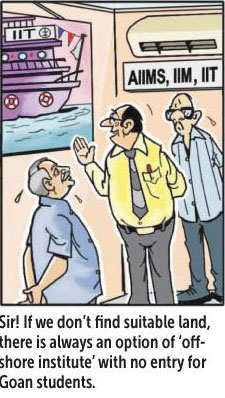BEIJING, APRIL 7
India today made plain its opposition to China on the latter issuing stapled visas to Kashmiris and of undertaking developmental works in Pakistan-occupied Kashmir, even as the two sides inked an agreement to set up a hotline between their prime ministers.
“We do not accept the stapled visas on the passports of residents from Jammu and Kashmir. Our position in this regard was again made clear during the talks,” Foreign Secretary Nirupama Rao told reporters here.
India maintains that Jammu and Kashmir is its integral part and there should be no discrimination between residents of the state and rest of the country.
Rao, who briefed media on the talks External Affairs Minister S M Krishna had with the Chinese leadership, said, “They (the Chinese side) listened attentively to what we said. We underlined the need for more sensitivity to be shown to Indian concerns in this regard. This is a subject of ongoing discussion with China. That is where it stands at the moment.”
She said the minister strongly conveyed India’s concerns over China stapling visas for residents of Jammu and Kashmir, during his meeting with his Chinese counterpart Yang Jiechi.
The agreement for setting up hotline between prime ministers manmohan Singh and Wen Jiabao would enable the two leaders to hold direct conversations. The decision to set up the hotline was reached during a meeting between Singh and Chinese President Hu Jintao in the Russian city of Yekaterinburg in June 2009.
The establishment of the hotline showed how close India and China were with each other, Krishna said.
Krishna, who wrapped up his four-day visit, called on Wen and raised the issue of China supporting India’s
candidature for a permanent seat in the United Nations Security Council.
India has been asking China to review its policy on UN reforms, saying the interests of both countries converged on several issues, including climate change and world trade and this can be further bolstered through active cooperation.
“The Chinese position in this regard was as encapsulated in the joint statement issued after Prime Minster
Singh’s visit to China in 2008,” Rao said.
The joint statement had said China attached “great importance” to India’s position as a major developing country in international affairs. “The Chinese side understands and supports India’s aspirations to play a greater role in the United Nations, including in the Security Council,” it had said.
During the talks, Krishna also raised New Delhi’s concerns over China undertaking development projects in
Pakistan-occupied Kashmir. “Yes, the matter was raised. Our concerns were conveyed,” Rao said.
